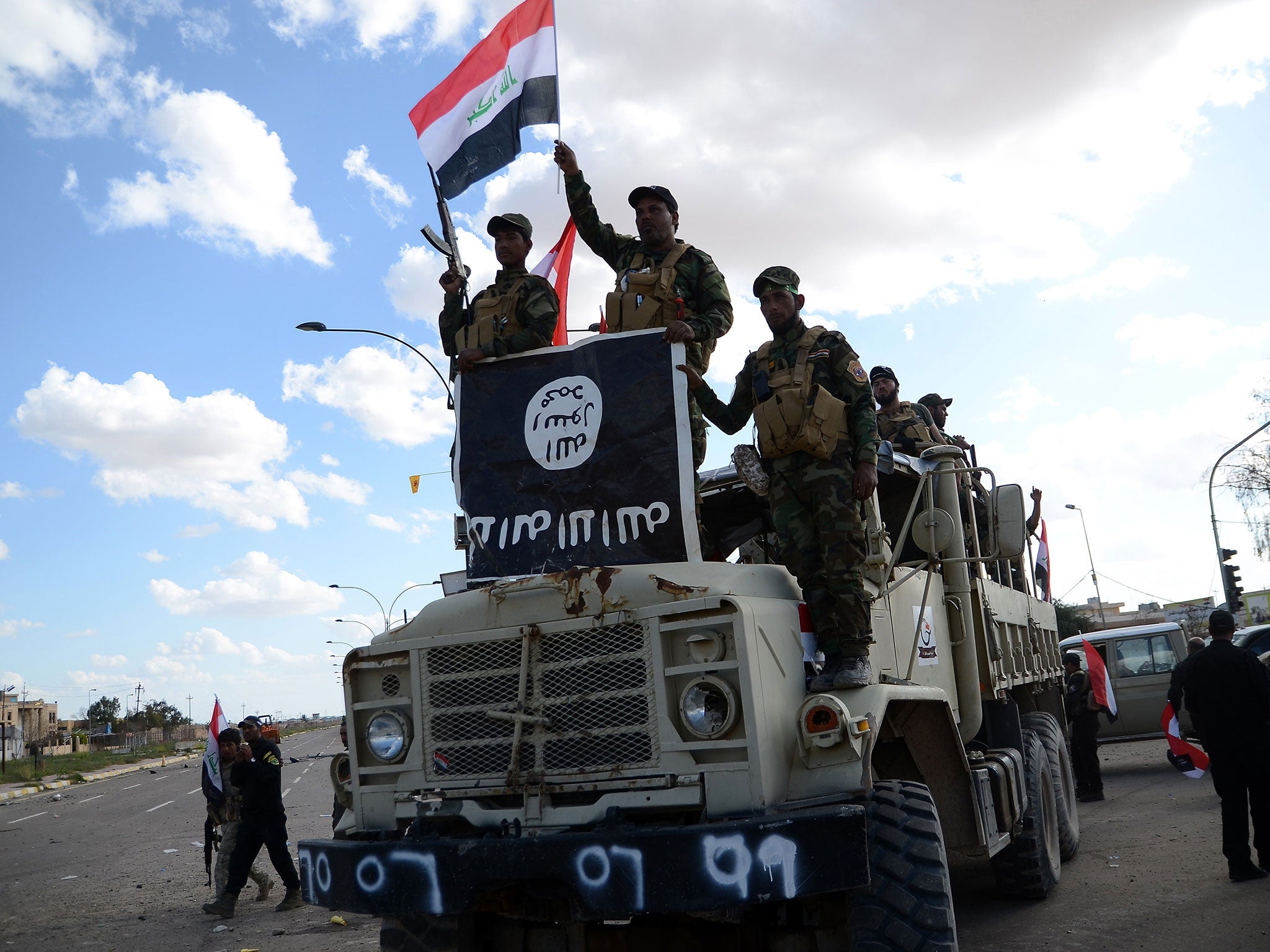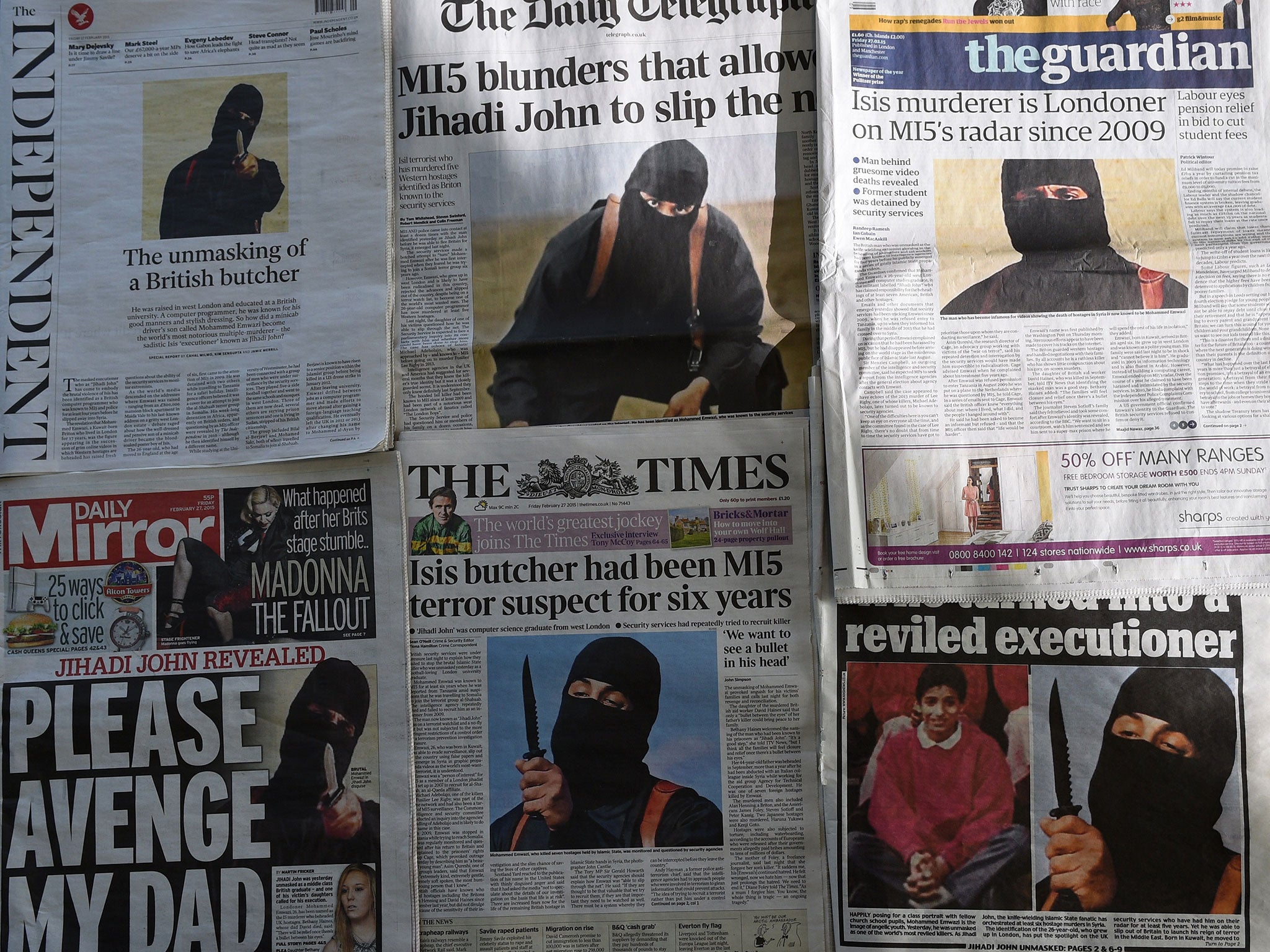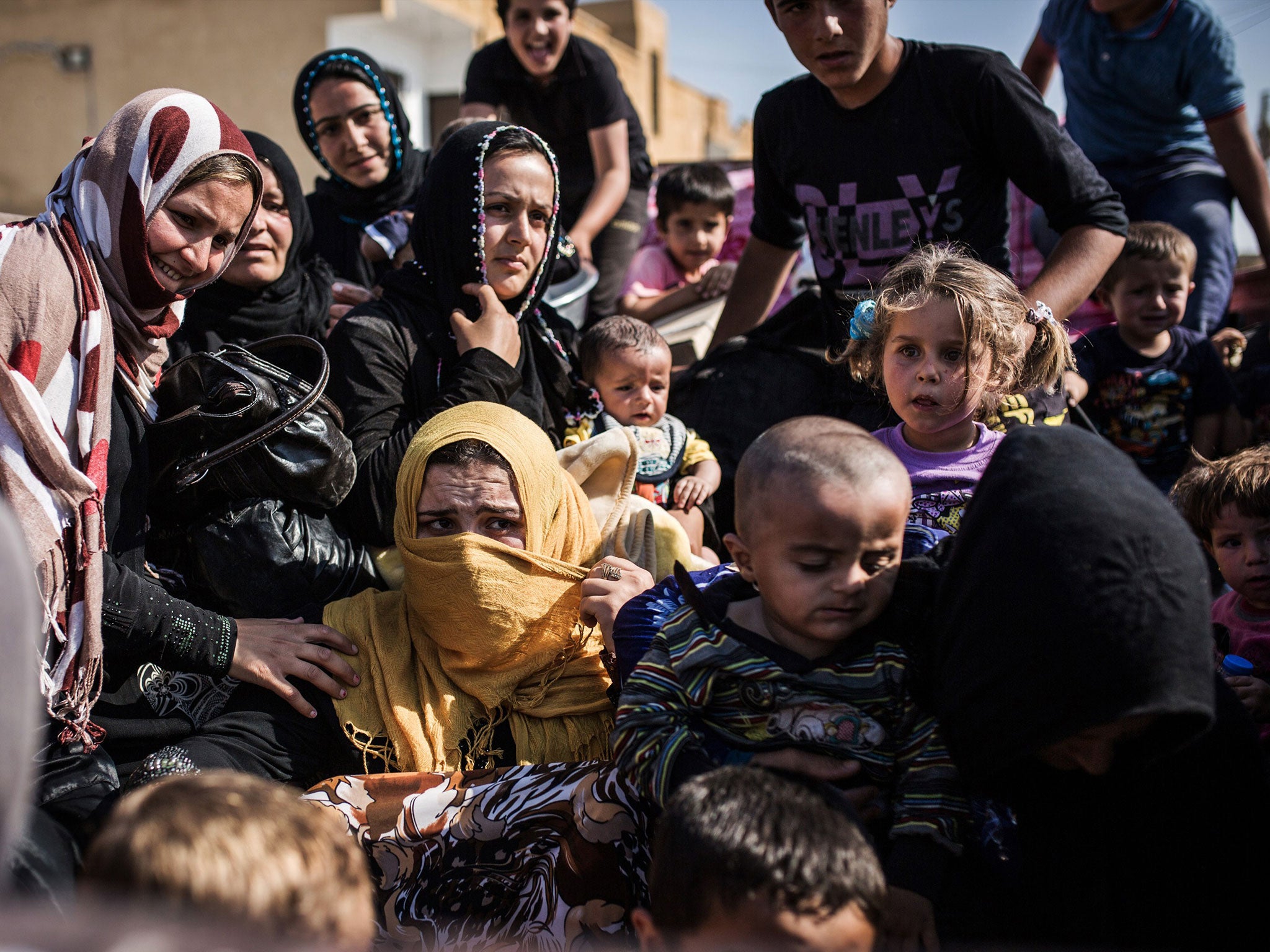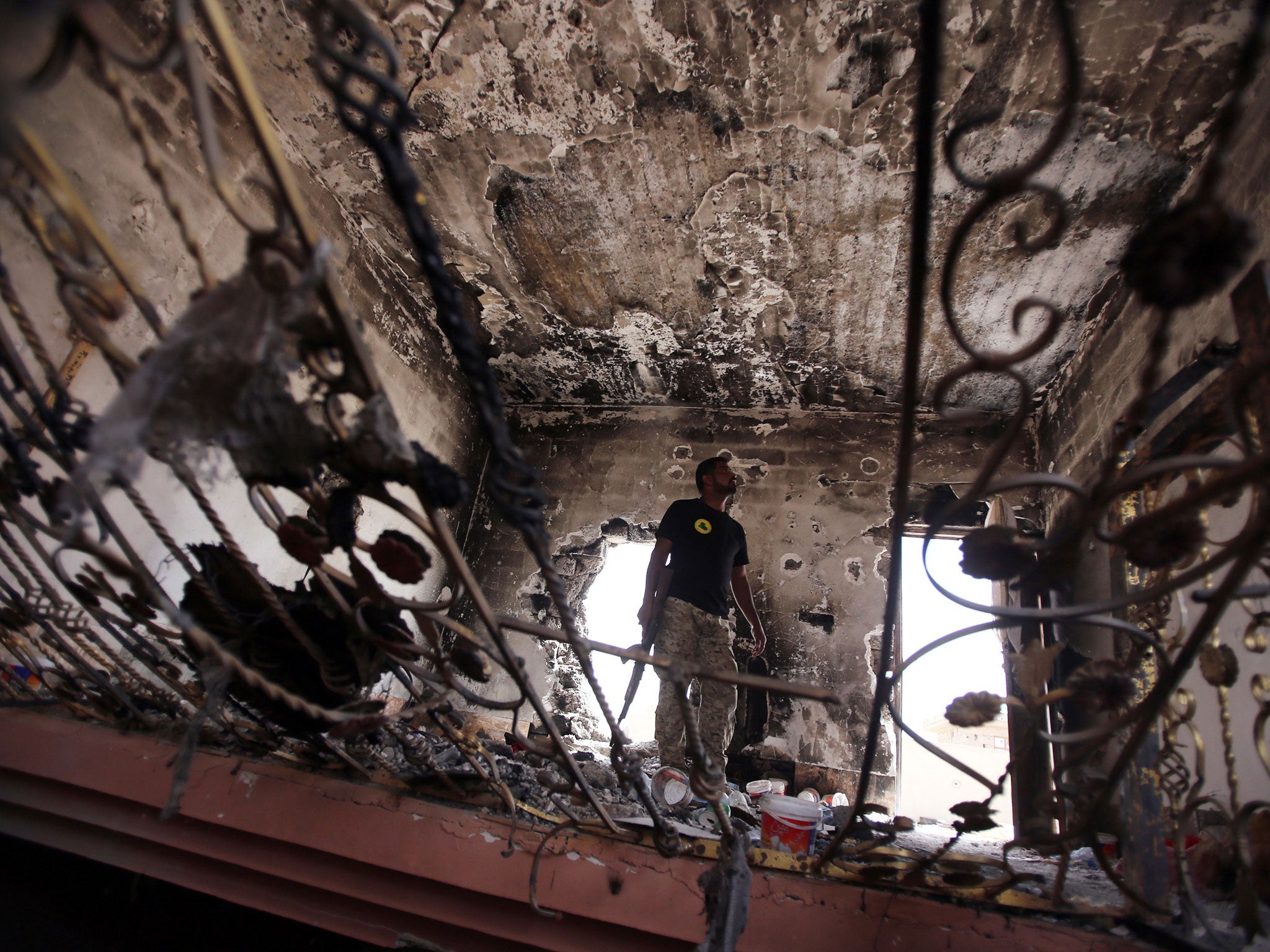Isis, a year of the caliphate: How powerful is the ‘Islamic State’ and what threat does it really pose to West?
We pose the big questions to eight experts in the first in a four-part series

It is now one year since Isis declared the territories it controls as a single caliphate, but because of the dangers of travelling there we still know surprisingly little about this brutal militant group.
Across the Western world, academics, experts and officials are struggling to get to grips with an organisation that only seems set to grow in its importance and influence.
Here, we ask eight leading authorities on the so-called “Islamic State” just how strong the group really is – and how much of a threat it poses to the rest of the world.

An expanding global network
Hassan Hassan is the co-author of Isis: Inside the Army of Terror and associate fellow in the Middle East and North Africa Programme at Chatham House
Isis’s strength and popularity are fluid and vary from one place to another – in Syria, they are far less entrenched than they are in Iraq. The group’s defeat in Tal Abyad is a clear sign of that.
But in Iraq and eastern Syria, the group has little to worry about from within its territories. It has managed to eliminate any potential threats emanating from these areas. But they are still vulnerable to attacks because they are surrounded by hostile groups, even though these groups have been busy fighting the regime or catching their breath from recent fighting.
Isis currently poses little threat to the West, but it is potentially more dangerous than al-Qaeda as its global network is expanding. The group also encourages individuals to take the initiative and be creative in small-scale attacks without even coordinating with the group. This seems to be the model Isis is focusing on at the moment.
Battlefield losses – but a great capacity to incite attacks
Charlie Winter is an analyst with the counter-extremism think-tank Quilliam
In terms of numbers, we know people are going out there on a regular basis – not just from Western countries as their media output suggests, but from other Middle Eastern countries as well.
But they are also losing fighters on a daily basis, and it’s always a question of replenishing only as fast as they are depleted. It’s something Isis tries to hide – the fact that it loses soldiers at such a high rate.

At the same time, Isis’s attention has been drawn westward as the international coalition takes on a more aggressive role. Whereas before we had very few videos calling for direct attacks against the West, now they come very regularly indeed.
Isis’s commanding presence in terms of ideological influence does mean it has more capacity to incite attacks than ever before – and while al-Qaeda was the first to set up an English-language magazine in Inspire, Isis has been far more successful at getting people to go the extra mile and actually carry out attacks.
Still concentrating on the caliphate
Daniel Koehler is the director of the German Institute on Radicalisation and De-radicalisation Studies (Girds)
Isis’s manpower is very hard to assess and some estimates reach as high as 200,000, but it most likely has something around 40,000 – 50,000 in Syria and Iraq, not including international groups and supporters.
The military strength of Isis is, after a short setback, mostly unbroken. They have changed their main tactics, which were too easy a target for coalition airstrikes and are now operating more covertly.
And they still control a vast geographical area and, despite some financial losses, are still by far the richest terrorist organisation ever seen.
Currently, Isis is not really looking at attacking the West directly, although partially some propaganda has called for that. Most of their efforts are still concentrated at establishing the caliphate and holding the territory they have won.
But there are currently two threats: Those in Western countries who support Isis and maybe want to travel to Syria but are hindered from doing so, and those who return from Isis territories.
The former is statistically a greater threat – most returnees come back because they have not found what they were looking for with Isis. Most are traumatised and disillusioned.
Getting closer and closer
Dr Natasha Underhill is an expert on terrorism in the Middle East at Nottingham Trent University and author of Countering Global Terrorism and Insurgency
We usually think of strength in terms of numbers, but for Isis their strength comes from their tactical nature, their ability to re-group, their extreme fluidity and their staunch belief system. The assault on Mosul, for example, was led by just 800 Isis members – a relatively small number compared to the thousands of Iraqi security forces that they were able to overcome.
Read more:
Nine rules that show the reality of day-to-day life under Isis
Nine Battles that made Isis what it is
What Google still can't tell us about Isis
The threat to the West from Isis’s control centre is not as severe as we might think at this point in time. The group is more focused on developing and expanding its caliphate – and with every territorial gain they get closer and closer to doing so.
When they are more stable in terms of controlling territory it is then that their focus may turn outward, however. It’s reported members of Isis in command positions have started posting propaganda saying that the group has its eye on the West, an ominous sign given the trouble we are having dealing with them in Iraq and Syria.
Sleeper cells and refugee flows
Joseph Willits is an official with the Council for Arab-British Understanding (Caabu) and a former teacher based in Syria
The most serious threat that Isis poses to the West remains in the repercussions of their actions and territorial gains, exacerbated by the actions of the Assad regime in Syria. Conflicts will continue to displace thousands of people.

From just 2 to 15 June, more than 23,000 people fled into Turkey due to fighting near the border between Isis and the Syrian Kurdish forces. With Isis in Libya, the refugee crisis in the Mediterranean will only worsen. Inevitably, these huge refugee flows will impact greatly on Europe. The subsequent costs will be huge, as will the effects on key western strategic interests in the region, such as Jordan, Lebanon and Saudi Arabia.
Isis’s primary goal at the moment is to establish a state, and maintain its hold on cities like Mosul and Raqqa. But while Isis may not directly prioritise the shedding of blood in European capitals or in tourist sites across the Middle East, they would certainly benefit from sleeper cells, stirring things up and intensifying this climate of fear.
A catalyst for global terror activity
Peter Welby is an analyst for Religion & Geopolitics, part of the Tony Blair Faith Foundation
Isis’s message is drawing support and foreign fighters from around the world. The risk is that this could be a catalyst for global terrorist activity which could be even worse than what we have seen from al-Qaeda.
The fact is they are winning the battle of ideas. Isis is not a death cult as it is sometimes described – it is a well-organised, well-resourced and religion-based extremist movement that is growing in influence well beyond the borders of Iraq and Syria.
To certain people, mainly disaffected young men, its apocalyptic narrative of a final war between Islam and non-believers will continue to resonate.
A serious threat to the UK
Britain’s Foreign and Commonwealth Office, via a spokesperson
Isil (another name for Isis) has lost significant areas of territory and it’s clear that overall, the Global Coalition is pushing it back. The action being taken by the coalition, in support of Iraqi security forces, has liberated key towns in Northern Iraq including Rabiyah, Zumar and broken the siege of the Yazidis on Mount Sinja. Iraqi Security Forces have re-taken Tikrit, and in Syria Isil were pushed out of Kobane and coalition action has supported the liberation of Tal Abyad.

We face a real and serious threat in the UK.
People seeking to travel to engage in terrorist activity in Syria or Iraq should be in no doubt we will take the strongest possible action to protect our national security, including prosecuting those who break the law. We also have a wide range of powers at our disposal to disrupt travel and manage the risk posed by returnees.
A global threat to us all
Farah Pandith is a former Special Representative to Muslim Communities for the US State Department and senior fellow at Harvard University’s Institute of Politics
Because Isis’s ideology has no borders, recruits come from a demographic that is not within a region. So when we talk about why people should be paying attention to it, it isn’t just because there are people getting recruited in your backyard, it’s because the infection of this ideology is changing the absolute fabric of the globe, both in custom and in tradition and in the way people think about things.
Isis is changing the way young people think about their identity. This ideology has an impact across all borders, particularly for millennials, and it is a global threat to us all.
Join our commenting forum
Join thought-provoking conversations, follow other Independent readers and see their replies
2Comments